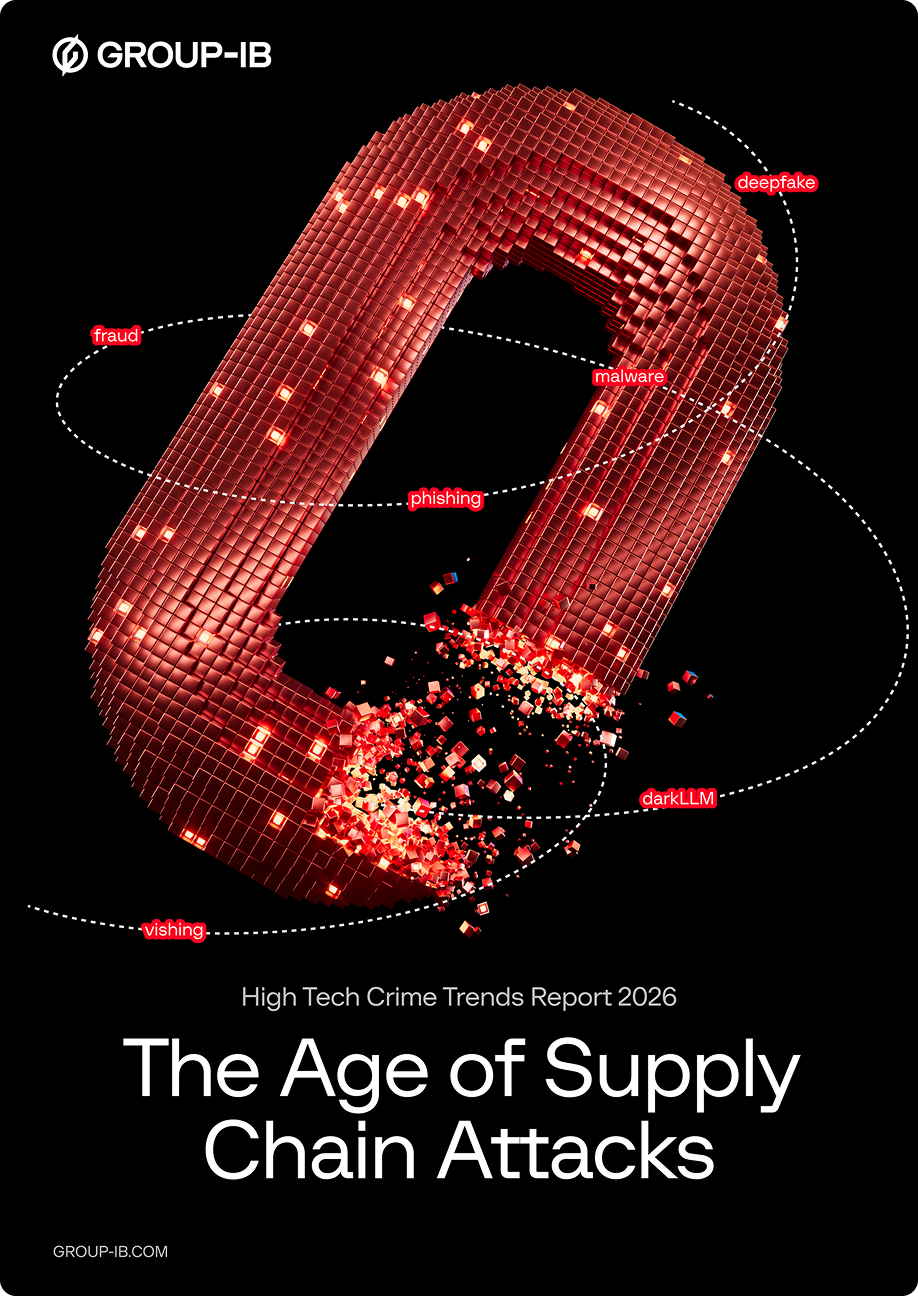What Is the Deep Web?
The Deep Web refers to parts of the World Wide Web that are not discoverable by standard search engines. This includes content behind password-protected logins, dynamic pages generated in real time, and encrypted networks.
The deep web contains private databases, email inboxes, subscription-based services, and internal corporate systems. While it’s often misunderstood, the deep web is not inherently malicious; it simply consists of legitimate web content hidden from public search results for security, privacy, or technical reasons.
Why is it Not Indexed?
The information available on the deep web is sensitive and, at times, illicit. Therefore, indexing it may lead to privacy leaks and an increased propensity to compromise corporate data, unauthorized access, fraud, and other cyber threats.
It’s important to mention that although the deep web is inaccessible, not all of its content is illegitimate. The deep web also includes resources, protected websites, pages behind paywalls or subscription services, hidden pages, non-HTML content, and more that require a unique browser (e.g., Tor).
What are the Benefits of the Deep Web?
The Deep Web includes everyday services like online banking, subscription portals, internal enterprise systems, and private communication platforms, things we use all the time but don’t see on Google.
Here are the key benefits of the Deep Web:
1. Privacy Protection
Unlike the surface web, search engines don’t index the deep web. Many deep web platforms use additional layers of encryption and access controls, making it far more difficult for third parties to track user behavior. This is especially helpful for:
- People seeking to limit digital tracking and surveillance
- Researchers accessing confidential academic databases
- Employees working within protected corporate environments
2. Stronger Security for Sensitive Data
Deep web services, like healthcare portals or corporate dashboards, often use advanced authentication and encryption protocols to protect users’ personal or financial information. These measures reduce exposure to:
- Credential theft
- Malware injection
- Unauthorized data scraping
By design, the deep web creates fewer opportunities for public-facing attacks.
3. Freedom of Expression in Restricted Environments
The deep web can serve as a lifeline in countries with strict internet censorship. Specific platforms allow individuals to:
- Share ideas and news without surveillance
- Participate in open forums under pseudonyms
- Access uncensored educational and political content
4. Secure and Anonymous Communication
Deep web-based tools such as encrypted email services, collaboration portals, or anonymous messaging apps offer privacy-first alternatives to mainstream platforms. These are commonly used by:
- Human rights organizations
- Legal professionals handling sensitive cases
- Businesses managing confidential IP
Many of these services use end-to-end encryption and do not retain user logs, reducing the risk of exposure.
5. Access to Specialized Knowledge and Resources
Not all valuable content lives on the surface web. The deep web hosts:
- Academic databases (e.g., JSTOR, LexisNexis)
- Scientific research repositories
- Private collections and archives
Deep Web vs Dark Web vs Surface Web
| Aspect | Surface Web | Deep Web | Dark Web |
| Definition | The visible, indexed portion of the internet is accessible via standard search engines. | The part of the internet is not indexed by search engines and is hidden behind logins or paywalls. | A hidden segment of the deep web that requires special tools and configurations to access. |
| Accessibility | Openly accessible using browsers like Google Chrome, Safari, Bing, etc. | Requires login credentials, subscriptions, or specific URLs; not publicly indexed. | It requires access to special software like Tor or I2P. |
| Size of the internet | Roughly 4–5% of total web content. | Roughly 90% of the internet includes private databases, email, cloud storage, etc. | A small portion of the deep web is intentionally hidden for anonymity. |
| Examples | News websites, blogs, online stores, social media (.com, .org, .gov, etc.). | Banking portals, academic journals, enterprise intranets, medical records, and cloud drives. | “.onion” sites, dark marketplaces, hidden forums, whistleblower platforms. |
| Indexing by search engines | Fully indexed and searchable via Google, Bing, Yahoo, etc. | Not indexed. Opted out or blocked from being crawled by search engines. | Standard search engines do not index it; the content is intentionally hidden. |
| Security risk | Generally safe with standard browsing practices. | Moderate risk (e.g., phishing links, outdated portals, accidental exposure to unverified pages). | High risk. It is commonly associated with malware, scams, illegal marketplaces, and anonymity tools. |
| Legality | Entirely legal and mainstream. | Legal, as long as access respects privacy and data ownership. | Contains legal and illegal content; activities here may violate local or international laws. |
| Use cases | Every day, browsing, shop, learning, and using social networks. | Accessing protected academic, corporate, or personal information. | Anonymity for journalists, activists, and, unfortunately, cybercriminals. |
How to Safely Surf Through the Deep Web?
Here are some tips to safely surf through the deep web:
- Use a secure and updated browser: Stick to reputable, privacy-focused browsers like Firefox with security add-ons or Tor (for dark web access). Always keep your browser up to date.
- Avoid clicking unknown or suspicious links: Stick to verified URLs. Random links, especially those shared in forums or chats, can lead to malicious sites or phishing pages.
- Use a VPN (Virtual Private Network): A VPN encrypts your traffic and hides your IP address, adding an extra layer of anonymity and protecting you from tracking or surveillance.
- Never share personal information: Avoid entering personal data like your real name, email, address, or banking info, even if a site looks legitimate.
- Use strong, unique passwords: Always use complex passwords and a password manager. Avoid reusing login credentials across different platforms.
- Keep antivirus and security tools enabled: Enable reliable antivirus and endpoint protection to detect malware or suspicious downloads in real time.
- Be cautious of downloads: Don’t download files from untrusted sources. Many downloads in the deep web can contain hidden spyware, trojans, or ransomware.
- Stay in read-only mode (When Possible): If you’re exploring forums or databases, avoid interacting unless you trust the platform. Observing without engaging lowers your exposure.
- Check site URLs carefully: Typos, random characters, or “.onion” sites not shared by trusted sources may be traps. Verify site authenticity before proceeding.
- Use encrypted communication tools: If you need to communicate, use end-to-end encrypted tools like ProtonMail or Signal for safety.
Who Uses the Deep Web?
Many people use the deep web, many of whom are just everyday internet users. If you’ve ever logged into your email, accessed online banking, or browsed a subscription-based service, you’ve already been on the deep web.
But beyond these routine users, others actively turn to the deep web for its privacy and anonymity benefits
Here are some of the groups that frequently use the deep web:
- Journalists and whistleblowers seeking to share sensitive information safely
- Citizens in censored or authoritarian regimes trying to access news and platforms blocked in their countries
- Political activists and protestors who need to protect their identities while organizing or speaking out
- Everyday users looking to:
- Access academic research or geo-restricted content
- Use ad-free, untracked search engines
- Communicate anonymously or secure their digital assets like cryptocurrency wallets
- Explore niche content and communities away from mainstream platforms
Deep Web Misconceptions – Busted
The deep web often gets a bad rap, thanks partly to how frequently it’s confused with the dark web. But the truth is, the deep web is a lot more ordinary (and essential) than you might think. Let’s break down some common myths that surround it and what’s true.
Myth 1: “The deep web is illegal.”
Reality: The vast majority of the deep web is perfectly legal.
The deep web includes your Gmail inbox, your company’s internal HR portal, medical records, and paid subscriptions to sites like Netflix or The New York Times. Search engines don’t index these pages because they’re private, not because they’re illicit.
Myth 2: “Everything on the deep web is encrypted or hidden behind Tor.”
Reality: Much of it is simply behind a login screen.
You don’t need encryption tools or anonymous browsers to access most of the deep web. Everything from your online banking dashboard to your university’s course management system lives on the deep web.
These are dynamic, password-protected, or paywalled pages that are simply not indexed by search engines. Not because they’re obscured, but because they’re meant for specific users.
Myth 3: “Only hackers and cybercriminals use the deep web.”
Reality: If you’re reading this, you probably use the deep web daily.
Whether watching a Netflix series, checking your insurance account, or managing files in Google Drive, you’re already surfing the deep web. Hackers may exploit it, but so do researchers, students, employees, and even your grandparents using email.
Myth 4: “If you’re on the deep web, you’re being watched.”
Reality: The deep web is designed for controlled access, not surveillance.
You’re usually safer accessing secure portals than browsing open, ad-heavy surface websites. The key is knowing where you’re going and ensuring the site is legitimate.
Myth 5: “The deep and dark web are the same thing.”
Reality: The dark web is a small subset of the deep web, but not vice versa.
The deep web includes everything hidden from search engines; the dark web requires special software like Tor to access and is intentionally anonymized. While the dark web is home to anonymity-focused content, it only makes up a fraction of the deep web.
Does the Deep Web Expose Your Business to Cyber Risks?
Whether you realize it or not, your team probably uses the deep web daily, and that’s not bad. Logging into email, accessing cloud apps, reviewing financial statements, or streaming internal training videos? All of it happens in the deep web.
It’s simply the part of the internet that search engines can’t index, often because it’s private, protected, or hidden behind logins. So, no, the deep web isn’t illegal. But can it open doors to risks if not approached carefully? Unfortunately, yes.
A 2019 study found that around 60% of deep web content could pose risks to businesses, and that doesn’t even include the dark web’s shady underbelly. Let’s break down where those risks come from and why they matter.
Let’s break down the potential threats your business may face:
Security Risks
Sometimes, an employee might be researching a competitor or trying to access a restricted report. Other times, curiosity leads them into a forum or link that seems harmless… until malware gets downloaded.
- A single file from a sketchy source can let attackers quietly slip into your network
- Clicking a link on a compromised site could trigger spyware or credential harvesting
- Even viewing leaked data could create legal exposure if it wasn’t meant to be seen
Legal Risks
The line between “private” and “unauthorized” gets blurry fast on the deep web. Some content looks legitimate, but accessing it without permission, especially internal documents, paywalled data, or proprietary research, could land your business in hot water.
- You could unintentionally violate privacy laws or intellectual property rights.
- Regulatory bodies (like GDPR or HIPAA) don’t always wait to hear “we didn’t know.”
- Even if it’s one person on your team, the legal responsibility often falls on the company.
Reputational Risks
Let’s say someone posts your customer data on a hidden forum. Maybe it’s login info or internal strategy docs. Now imagine that the information spreads before your security team even knows it exists.
- Customers lose trust fast when they find out their data has been compromised
- Investors and partners get wary if your brand appears in the wrong places
- Cleaning up the reputation damage often takes longer than fixing the technical issue
Compliance Risks
If you work in finance, healthcare, or any regulated industry, “just browsing” the wrong part of the web could violate internal policy or even the law.
- Some regulatory frameworks require proof of secure web usage and monitoring
- If you can’t show what data flowed where, it could raise audit flags or result in fines
- The deeper the risk, the harder it becomes to stay compliant without visibility
So, What’s the Smarter Approach?
The answer isn’t to avoid the deep web; it’s to approach it wisely and watch it closely.
That’s where Group-IB can help. With our Threat Intelligence and Digital Risk Protection (DRP) platforms, you can:
- Spot leaked credentials and company data before they became news
- Detect if your brand is being impersonated or mentioned in suspicious places
- Take down harmful content quickly
- Understand what’s happening in deep corners of the web, without diving in blindly
The deep web doesn’t have to be a blind spot. With the right tools, it becomes a powerful source of insight and protection.
Get on a call with us to know more.
























